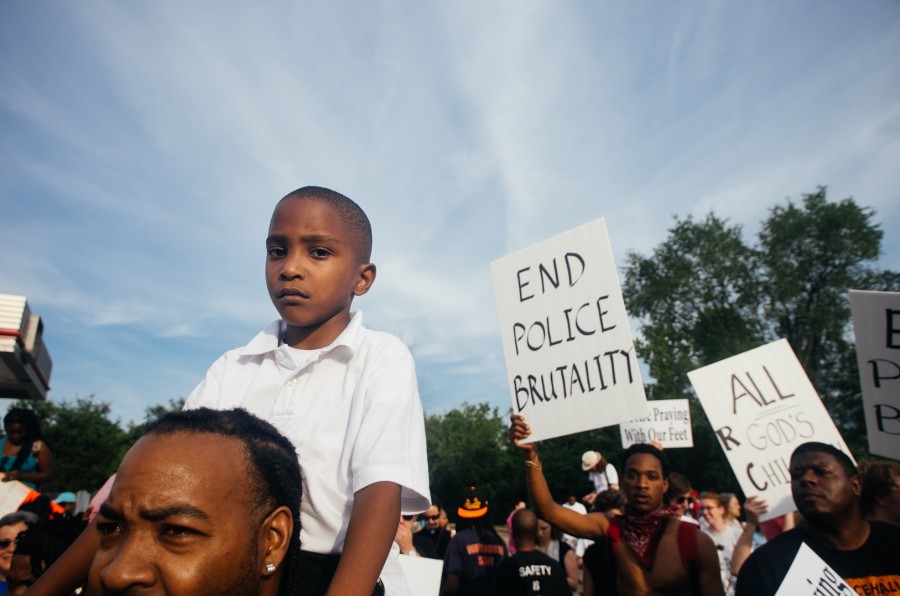Ferguson Six Months Later
End police brutality
March 5, 2015
Six months ago, a small town in Missouri faced an unspeakable tragedy. A white police officer by the name of Darren Wilson shot an unarmed black teenager. The victim, Michael Brown, was allegedly a suspect in a local store robbery.
The events that occurred in Ferguson between Brown and Wilson on Aug. 9, 2014 are highly disputed. Witnesses at the scene say Brown charged at Wilson while others say Brown was running away when Wilson fired. Regardless of who initiated the struggle, the fact remains that Brown is dead while Wilson is alive.
When looked at on an individual basis, it seems like this is just a simple case of an officer defending himself. However, when placed within the social context of a country that has a long, complex history of racial violence – and features many more actors than just the Ku Klux Klan (KKK) – Michael Brown’s case becomes a lens for looking at contemporary relations between white and black Americans.
Evidence of racial prejudice is hard to prove in an era when people believe that all racists are KKK members who wear their beliefs on their sleeve. The truth is that racism is a complicated thought process that is so pervasive and insidious that most racists are average individuals who can work jobs such as doctors, teachers and even police officers.
There are critics who have been misusing the words and philosophy of Dr. Martin Luther King, Jr. to shame the residents of Ferguson after the protests took a violent turn in November when a grand jury decided not to indict Wilson. To say that Dr. King would be ashamed of the whole black community in Ferguson is not just wrong, but shows a gross lack of understanding King’s legacy.
It was Dr. King himself who said, “a riot is the language of the unheard” in a CBS interview in 1966. Although that quote was said within a larger context that did not condone violence, it showed that as an African-American, Dr. King understood well the suffering that black Americans faced not even a half-century ago. Even though great strides have been made towards equality since Dr. King’s time, unarmed black individuals are still being shot to death every year by police officers.
The real question isn’t if Dr. King would condone the actions of the Ferguson protestors, but if he would approve of the social conditions that allowed for Brown’s body to be left in the street for four hours as if Brown was another pile of road kill.
The question of whether Ferguson, Missouri was the site of a protest or a riot is debatable depending on who is spoken to. What some saw as senseless violence with no goal in sight, others saw as a fight for justice. To this day there are still protesters in Ferguson, albeit a small number. In addition, more African-American residents of Ferguson have begun to initiate political change by running in elections for local office. It is also worth noting that U.S. Attorney General Eric Holder is pursuing a lawsuit against the Ferguson Police Department over charges of racial discrimination.
Racial bias within police departments is a widespread problem that is reflected in various statistics of police initiatives such as the New York Police Department’s “Stop and Frisk”. The policy allows NYPD to stop any individuals they deem suspicious and do a body search for any contraband. In fact, multiple studies have shown that Latinos and African-American are disproportionately targeted by police officers and that white individuals actually tend to carry more weapons and illicit substances.
Would Dr. King approve of a society where the quality of black lives is less important than damaged property? I doubt it.








